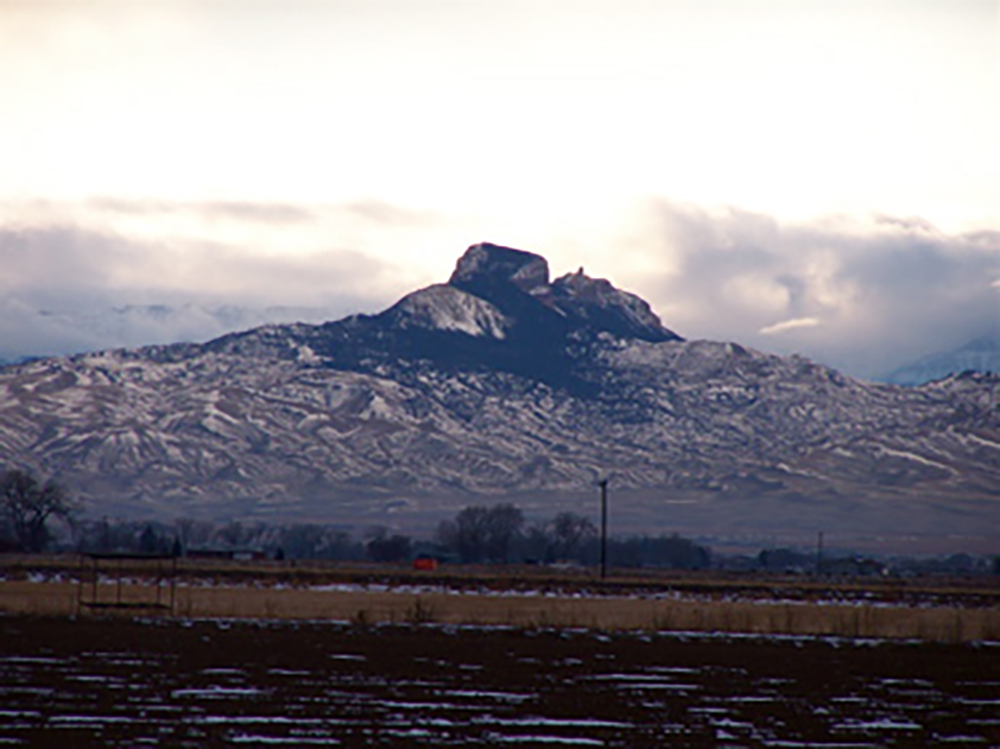A weekly newsletter for Pacific Standard Premium members.

(Photo: Mandel Ngan/AFP/Getty Images)
Your Five Essential Reads
A rundown of five of our most important and timely stories from the past week.
- Donald Trump’s presidency has forced many to confront their previous assumptions of what is fair game in political discourse. What was once seen as an arena for civil disagreement has, in many cases, spiraled into the kinds of personalized attacks on race, nationality, and gender that go outside the previous bounds of inclusive debate. For political science professors, this development has created a new challenge in the quest to create an inclusive atmosphere in the classroom. And as contributing writer and Denver University political science professor Seth Masket notes, it’s something that will have a significant impact on the face of higher education for decades to come. Read Masket’s piece here.
- Staff writer Francie Diep attended a public hearing hosted by the Environmental Protection Agency in Washington, D.C., during which arguments were heard over a proposed “science transparency rule.” The rule is controversial because it says that, if an agency uses scientific studies to write regulations, then they must make the data behind those studies publicly available, a situation that raises concerns over data privacy and ethics among researchers. In the room, Diep reports that opponents of this rule outnumbered supporters seven to one. Read Diep’s report here.
- “It’s not being led by Bernie Sanders people. These are middle-class women’s networks, with some men in them.” Harvard University political scientist Theda Skocpol is pushing back against the narrative that the revitalization of the Democratic Party will be spearheaded by the youth. In an interview with senior staff writer Tom Jacobs, Skocpol points out that much of the grassroots organizing currently supporting leftist causes is organized by middle-class, middle-aged women. These organizations, she argues, are the best hope for the Democrats to regain influence on Capitol Hill and beyond. Read the interview here.
- How air pollutants created by wildfires affect our respiratory systems is relatively well-studied, but a much less studied aspect of these disasters is how these contaminants can impact local produce. As a part of our New Landscapes series, contributing writer Sophie Yeo spoke to researchers who are studying what effect the devastating fires in Sonoma County have had on local produce and animal products. And the insights could have wider-reaching conclusions for more than just areas affected by fire: “If there is a scientific reason for concern about air pollution in produce, then anything we might find in Sonoma County after the disaster could help us better understand the larger phenomenon, which is important for everywhere where we grow food.” Read Yeo’s story here.
- In a small town 26 miles above the Arctic Circle, the local population is making a concerted effort to provide its elderly population with a person-centered approach to care. Providing them with a traditional diet helps the elders maintain a healthy body weight and remain mobile, but the taste of familiar foods also brings them comfort. Charlee Catherine Dyroff spoke to individuals involved with the initiative about the hurdles they’ve had to overcome to provide this kind of special care to one of the most vulnerable groups of people. Read Dyroff’s piece here.
Since We Last Spoke: Changing ‘Locker-Room’ Talk
Updates to stories from the Pacific Standard archive.
In February, a federal appeals court ruled that a provision of the 1964 Civil Rights Act banning workplace discrimination on the basis of sex also prohibits anti-LGBT discrimination. The decision is the latest instance of what Michael Fitzgerald described as “the end of locker-room talk” in the May/June 2015 issue of Pacific Standard.
The Second Circuit court’s February ruling centered on the case of a Long Island skydiving instructor, Donald Zarda. He filed a lawsuit against his employer, Altitude Express, alleging that the company fired him because of his sexual orientation and in doing so violated Title VII of the Civil Rights Act. But determining sex-based discrimination is tough, as Fitzgerald reported. “The language in Title VII is, by Washington standards, brief and open-ended,” he wrote. “It prohibits job discrimination on the basis of sex, but the term sex is not defined, and the word harassment never even appears.”
If the recent ruling is any indication, America’s federal courts are slowly starting to side with the argument that the Civil Rights Act applies to all people, regardless of gender or sexual orientation.

(Photo: Wikimedia Commons)
PS Picks
PS Picks is a selection of the best things that the magazine’s staff and contributors are reading, watching, or otherwise paying attention to in the worlds of art, politics, and culture.
Echoes of History in Heart Mountain: Heart Mountain, Gretel Ehrlich’s 1988 historical novel, takes place in Wyoming during World War II. As in The Solace of Open Spaces, Ehrlich’s collection of essays about herding sheep and being human in Wyoming, the windswept and unforgiving landscape plays a key role in holding the story together. Heart Mountain itself looms large—and gives its name to the nearby internment camp, where more than 10,000 people of Japanese descent were held between 1942 and 1945. The book centers on the ranchers and barflies of Luster, a fictional small town next to the non-fictional camp, and how their lives become entwined with the people of Japanese descent who are confined to the camp.
In a recent opinion piece in the New York Times, Michiko Kakutani draws a parallel between the removal of people of Japanese descent from their homes and President Donald Trump’s current immigration policy, saying that they’re based on the “same sort of political calculus of fear and bigotry.” For Kakutani, this history is personal; her mother’s family was incarcerated at an internment camp in the Utah desert.
But what’s personal for Kakutani might feel like far-off history to some, and Heart Mountain is worth reading for the way it gives color and texture to a horrific violation of constitutional and human rights. The book came out the same year that the Civil Liberties Act granted reparations to Japanese Americans who had been interned. That was only 30 years ago. It might be helpful, then, to consider how slowly history moves, how rashly a government can act and how slow it can be to realize its mistakes, and how much closer we are to this history than we’d like to imagine.
—Rebecca Worby, Associate Editor
PS in the News
A look at where our stories and staff surface in the national conversation.
- Contributing writer Jimmy Tobias’ deconstruction of the public lands myths being spread by Utah Senator Mike Lee was included in the Center for Western Priorities weekly newsletter.
- The Washington Post put senior staff writer Tom Jacobs’ interview with Harvard University political scientist Theda Skocpol about the future of the grassroots organizing in the Democratic Party in its daily happy hour round-up.
- In a piece for the Los Angeles Times about the movement to bring grizzlies back to California, Gustavo Arrellano referenced Jeremy Miller’s feature story, “Awakening the Grizzly,” which appeared in our most recent print issue.
- For LitHub, Rebecca Solnit discussed a recent James McWilliams review of Safiya Umoja Noble’s book about investigating Dylann Roof’s search history as a way to shed light on how search algorithms can control our lives, and the access to information that shapes our views.
The Conversation
David Faris Offers Democrats a Plan for Fighting Back (PSmag.com, July 5th)
- It is hard not to see the frustration of the Dems as a temper tantrum. If they don’t win, instead of working with the opposition party to find common ground issues that they can agree on, they want to demonize the other side by labeling them as racists, evil, etc. When did America become a country where alternative views are based on evil motives? Why do we dismiss the hard-working people of the Midwest as being unimportant to our nation’s values? Our Constitution was written so that certain states couldn’t control the interests of the whole country just based on population. It has served us well for over 200 years. As a resident of California, I don’t think my vote should overshadow those in smaller-population states. I didn’t vote for [Donald] Trump, don’t care for his choices in his personal life and his moral compass, but it is hard to argue he is not following through on his campaign promises, something we haven’t seen from his predecessors. —James Voos
The Crisis in Political Science Education (PSmag.com, June 16th)
- It’s interesting to see this come full circle. I’m not going to go back into the annals of history, but in my lifetime, I remember George W. Bush’s “You’re either with us, or you’re with the terrorists” line. Even though as a young man I supported him at the time, that line didn’t sit with me well. I knew there were conscientious objectors and good pacifists that simply refused to get involved in violent conflict either way. Yet this perspective essentially said they were bad people and “against us.” He was castigated (and rightfully so) by Democrats of the day as feeding the “us vs. them” mentality, alienating even merely neutral parties, and overall increasing polarization. Now we’ve come full circle. In less than 20 years, it is now the left that is demanding that you’re either with them or against them. You’re either an active supporter of social justice and their definition of “inclusivity” (which is active exclusivity), or you’re actively aiding systemic racism and bigotry. —tocano
The Least Analytical 2016 Voters: Democrats Who Supported Trump (PSmag.com, July 12th)
- The subject and clinical tone of the article perfectly illustrates why Mr. Trump won the election. Smart people with feelings and souls finally stepped up and took control from smug, analytical snobs. Instead of trying to change people so they will come back, why don’t you change? Why don’t you perform self-analysis to find out why you are the way you are? —Paul J
- The mistake the media makes over and over is classifying people as D or R when so many people do not identify as either. —Sheila Sorvari
Conservative Media Is Waging a War on the Humanities, and It’s Succeeding (PSmag.com June 16th)
- This from @PacificStand is good about the right-wing media ecosystem waging war on higher education. He’s wrong about one thing though: “Heterodox Academy” is part of the problem. It does the same thing but in a more “civil” tone. —Matt Gabriele (@prof_gabriele)
If you have any thoughts about this newsletter or our work—what you like/didn’t like/want to see more of—you can reach us at premium@psmag.com. If you’re not already, become a premium member by following the button below. As we continue to build out the benefits of a premium membership to Pacific Standard, we want to hear what would be most valuable to you.





